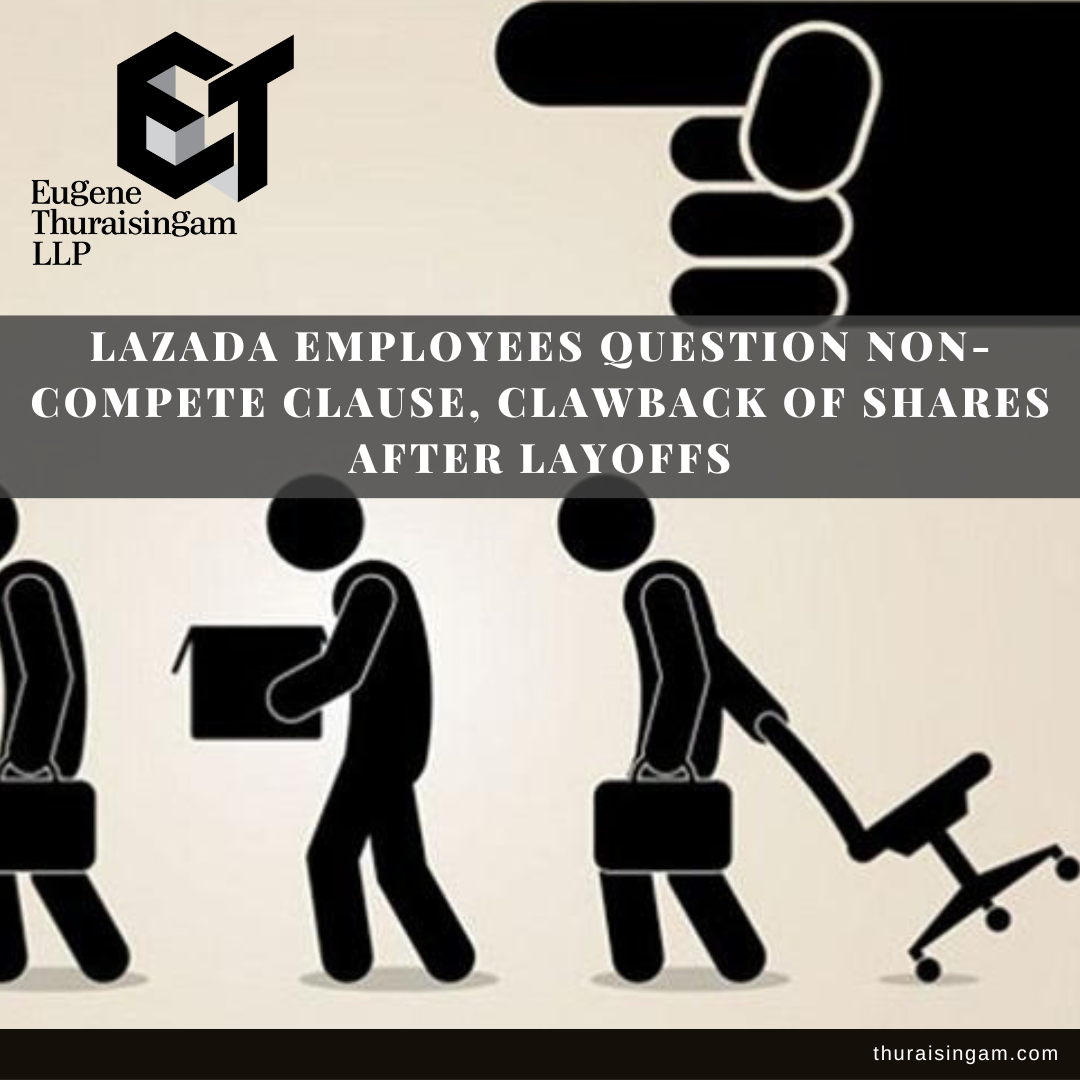Lazada employees question non-compete clause, clawback of shares after layoffs
In January 2024, Lazada conducted a retrenchment exercise in which it laid off a large number of its employees. Many of these employees had remuneration packages which included restricted stock units (RSUs), which is an award of shares that comes with conditions such as a vesting period before they are transferred to the employee. These RSUs could be worth as much as a year’s salary and vest over as long as four years.
Another condition could be that the employee in question is bound by a non-compete clause, failing which the RSUs could be forfeited or subject to clawbacks. The list of companies includes Sea, Grab, TikTok, GoTo, NTUC FairPrice, Giant, Amazon, J&T, SF, Kerry and NinjaVan. According to Lazada, a violation of the non-compete clause by joining one of the companies on the list could lead to vested shares being cancelled. When staff members asked if Lazada could buy back the shares, they were told to wait for the company’s initial public offering (IPO). However, Lazada is not yet profitable and hence employees with vested shares do not receive any dividends.
CNA spoke to a number of employment law and HR experts on this issue.
It would be unfair to enforce strictly such a clause, especially in a retrenchment situation. An argument can be made that since the company has declared the employee redundant, it should not be preventing that employee from seeking employment elsewhere. Employees can try to negotiate this as part of their exit terms.
Chooi Jing Yen, partner, Eugene Thuraisingam LLP
The suddenness of the retrenchment exercise also led to intervention by the Food Drinks and Allied Workers Union (FDAWU) and Ministry of Manpower (MOM).
The full article by CNA can be accessed in the link below.
For legal advice on employment law-related issues, get in touch.
For more information on our expertise in employment law, click here.







